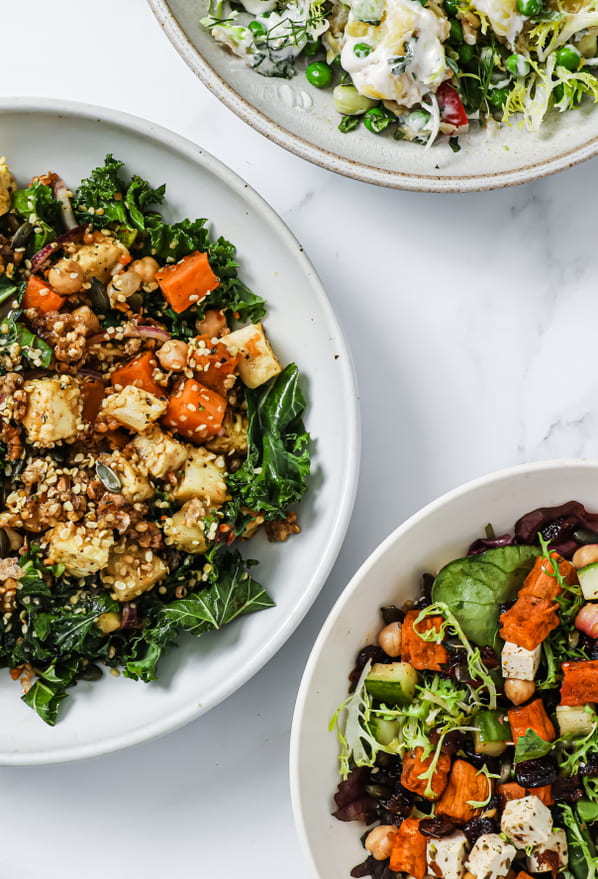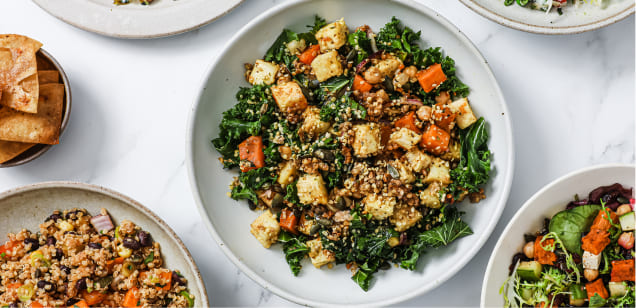How a plant-based diet can make you live longer
New research has discovered that eating a plant based diet could fight ageing and even add up to 13 years to our lives!
Veganism has been rapidly increasing over the past few years. Sign-ups to ‘Veganuary’ in 2022 were over 500,000 people - more than double the sign-ups recorded in 2019! The benefits of veganism are huge: from better skin and weight loss to lowered carbon emissions. Yet, new studies are uncovering possibly the most attractive side effect to removing animal produce… Longer life.
So what do we know about ageing? Well, we know that it is the weakening of biological functions. We understand the first signs of ‘ageing’ can be seen as early as 25. From here out, the body will slowly begin the process of ageing. Ageing is also the primary risk for disease and “pathologies” like cancer, diabetes and heart disease. Yet ageing seems to affect individuals entirely differently. Researchers and doctors are now starting to unravel the clues to how ageing can be affected and possibly even delayed.
Sardinia, Italy. A sunshine soaked island sandwiched between Spain and Italy. It's famed for dazzling beaches, crystal clear waters and one of the largest populations of centenarians in the world! Sardinia was labelled a ‘Blue Zone’, identifying the island as having an above-average life expectancy. Sardinians seem to live longer, healthier and happier lives. While genetics could play a role in this, there's no doubt, answers could also be found in the traditional diet. People of Sardinia tend to eat a Mediterranean diet, made up of healthy fats like good quality olive oil, beans and legumes, low processed food and lots of fresh vegetables. Sardinians also drink (in moderation) a special wine called Cannonau, which contains more flavonoids (phytonutrients with anti-inflammatory effects) and fresh sourdough bread which contains live bacteria and cultures that protect the gut. In general, Sardinians eat a mostly plant-based diet with only the occasional meal including meat or dairy. When animal products are consumed, generally they are locally sourced instead of from factory farms and large corporations which run the risk of regular antibiotic use, hormones and low-quality animal feed. So not only is the quantity lower, but the quality is higher.
Plant-based eating can seemingly help to delay the impact of ageing and possibly increase longevity, but why? One highly researched topic is the cause of inflammation in the body and its negative effects. Inflammation is exactly what eating a plant-based diet could reduce... possibly resulting in a longer life.
Normal levels of inflammation protect our body from pathogens and help the healing process. Our bodies need inflammation but the silent assassin is internal chronic inflammation. High inflammation affects the entire body and can cause damage to cells, organs, joints and the onset of autoimmune diseases. More than half of our immune defences are in our gut so it’s no wonder that diet has such an effect on inflammation!
When we eat animal products, our body has to digest “endotoxins” which, put simply, are inflammatory bacteria. The bacteria are digested and our bodies become inflamed to counteract these endotoxins. High saturated fat and trans fat levels which are also found in many dairy products, particularly highly processed ones, also cause an inflammation surge in our bodies.
Replacing animal proteins with plant proteins like beans, legumes, seeds and nuts, could reduce inflammation levels! It was found in a 2015 interventional study published by ‘Complementary Therapies in Medicine’ that CRP levels (the measure of bodily inflammation) were highly reduced in the majority of 600 people when switched to a plant-based diet. Their blood pressure, cholesterol and body mass index were also reduced.
So while the mystery of ageing and how ageing could be deferred into later life is still unfolding, it’s becoming increasingly clear that high inflammation levels in the body speed up the ageing process and increase the risk of disease and infection. Research tells us that eating a mostly plant-based diet and avoiding hyper-processed foods could even add 10 years to our lives.
A new study published by PLOS Medical Journal found that eating mostly plant protein and “reducing red and processed meats, sugar-sweetened beverages and refined grains” from the optimal age of 20, has an increased life expectancy of 10.7 years for women and 13 for men in the States. Though the increase in life expectancy did decrease the later in life the diet was introduced, it still increased overall life expectancy.
By reducing meat, dairy and hyper-processed food intake - you could very well live longer! More importantly, you could live a healthier, happier life.
References:
- Jay T Sutliffe, Lori D Wilson, Hendrik D de Heer, Ray L Foster, Mary Jo Carnot. 2015. “C-reactive protein response to a vegan lifestyle intervention”. Complement Ther Med.
- Janett Barbaresko, Mania Koch, Matthias B Schulze, Ute Nothlings. 2013. “Dietary pattern analysis and biomarkers of low-grade”. Nutr Rev.
- Lars T. Fadness, Jan-Magnus Okland, Oystein A. Haaland, Kjell Arne Johansson. 2022. “Estimating impact of food choices on life expectancy: A modeling study.” Plos Medicine.
- Norman, Kristina, Klaus, Susanne. 2020. “Veganism, aging and longevity: new insight into old concepts”. Current Opinion in Clinical Nutrition and Metabolic Care.
- Andrew Beauchesne. 2021. “How to Reduce Inflammation with a Plant-Based Diet”. Forks Over Knives.



